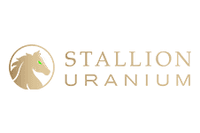Virginia’s Coles Hill Uranium Deposit Faces Crucial Vote as Russia Takes Uranium One
This week, the Virginia General Assembly will take up proposed legislation to end the state’s 31-year moratorium on uranium mining permits in what is expected to be a tight vote.
Proposed legislation that would end Virginia’s 31-year moratorium on uranium mining permits is set to be finalized this week. The Virginia General Assembly will take up the issue in its 2013 session in what is expected to be a tight vote. If passed, the legislation will be a monumental step toward production at the Coles Hill uranium project, which is wholly owned by Virginia Energy Resources (TSXV:VUI,OTCQX:VEGYF).
Last week, Virginia’s Coal and Energy Commission voted 11 to 2 to recommend lifting the ban, with Senator John Watkins (R-Powhatan) and Delegate Jackson Miller (R-Manassas) announcing that they will introduce legislation to establish regulatory and licensing requirements. Watkins has also proposed legislation that would impose a 3-percent tax on companies mining uranium in the state.
Senate Democratic Leader Richard Saslaw of Fairfax also announced his support for ending the ban at a news conference in Richmond that was attended by Watkins, Miller and Southside Virginia residents.
Coles Hill largest known uranium deposit in the United States
The proposed legislation to lift the ban would limit uranium mining to the Coles Hill deposit, the largest known uranium deposit in the United States and one of the top 15 largest in the world. The 3,500-acre property holds an indicated resource of an estimated 119.6 million tons with an average grade of 0.056 percent eU3O8 containing 133 million pounds of eU3O8, according to a company press release. The geology of the deposit is similar to Athabasca unconformity-style deposits and holds potential for resource expansion along strike and at depth.
An updated preliminary economic assessment (PEA) completed in June 2012 shows that the project has a capex of $147 million (including a 25-percent contingency) prior to production, alongside operating costs of $31/lb in the first 10 years and $36/lb over the expected 35-year mine life. The PEA estimates that 64.2 million pounds can be recovered at an average grade of 0.1 percent U3O8 if mill processing capacity operates at 3,000 tons per day; those conditions will result in an initial average production rate of 2 million pounds per year. Average annual revenue is projected at $140 million at a $64/lb uranium contract price. At that price, and at a discount rate of 7 percent, the net present value of the project sits at $427 million, with an internal rate of return of 36.3 percent at $64/lb uranium.
Virginia Energy’s roster of management and shareholders includes some of the most prominent names in the resource investment sector. Both Peter Grosskopf, CEO of Sprott (TSX:SII), which holds a 19.9-percent interest in the company through Sprott Resource (TSX:SCP), and Ron Hochstein, president and CEO of Denison Mines (TSX:DML,AMEX:DNN), are on its board of directors. Other shareholders include Lukas Lundin of Lundin Group and Lundin Mining (TSX:LUN), Energy Fuels (TSX:EFR) and Pinetree Capital (TSX:PNP).
Legislators to weigh economic upside with potential risks
Virginia Governor Bob McDonnell’s Uranium Working Group is expected to release shortly a final study on uranium mining’s potential socioeconomic impact on the state; that report will no doubt factor into lawmakers’ decisions on the bill.
Supporters of ending the ban say that doing so would have a positive economic impact, pointing to a state-commissioned study by Chmura Economics & Analytics, which notes that a full-scale operation at Coles Hill could “support 1,000 jobs a year and generate nearly $5 billion in revenue for Virginia businesses over 35 years.”
Southside Virginia suffers from a high unemployment rate, and Virginia Energy has said that nearly all employees at the Coles Hill operation will come from the region. Production from the proposed Coles Hill mine would benefit the state’s energy budget as well, since nuclear power provides more than 35 percent of Virginia’s electricity supply and requires approximately 1.6 million pounds of U3O8 annually.
A diverse variety of organizations oppose the ban, including the NAACP, the Virginia Farm Bureau Federation and neighboring municipalities such as Virginia Beach. Five of the state’s legislators — including Republican Senator Frank Ruff, a member of the Senate Agriculture, Conservation and Natural Resources committee — have submitted a letter to the General Assembly in support of the state’s ban on uranium mining.
Those in favor of keeping the ban believe the potential upsides of uranium mining do not outweigh the unknown risks to the environment and nearby communities. Environmental groups have pointed out that the state’s mining industry and regulators do not have experience mining uranium in the East Coast’s wet climate and fear the risk of tailings contaminating the region’s water supply. Virginia Energy Resources has said mining and milling at Coles Hill can be done safely and has noted that the company will store waste in below-ground containment units.
If the General Assembly votes to lift the ban on permits and create regulations for mining uranium ore, it will then be up to state, federal and county authorities, including the Pittsylvania County Board of Supervisors, to decide whether or not to issue permits for mining the Coles Hill deposit.
However, even the opposition is confident that mining at the project will proceed once the moratorium is lifted. Nathan Lott, executive director of the Virginia Conservation Network, a coalition of environmental groups, conceded, “[y]ou don’t create an expansive regulatory regime unless you have the intent to mine,” as per a report by Rex Springston of the Richmond Times-Dispatch.
United States’ bid for energy independence at risk
Energy independence in the United States relies heavily on the nation’s ability to develop its own natural resources for domestic use. In a country that consumes 55 million pounds of uranium fuel a year, but only produces 4 million pounds, the development of significant uranium deposits like Coles Hill is all the more important.
That is especially true in light of Monday’s news that Uranium One (TSX:UUU) will now be wholly owned by Russian state-controlled miner ARMZ. Uranium One holds the Willow Creek uranium mine, which is located in the Powder River Basin of Wyoming; it produced 214,800 pounds of U3O8 in 2011 and has significant potential for expansion. On Monday, Uranium One announced that ARMZ will pay C$1.3 billion for the remaining 48.6 percent of the company not already under its control. The Russian company plans to delist Uranium One. Uranium Investing News will continue to follow both these stories as they unfold.
Securities Disclosure: I, Melissa Pistilli, hold no direct investment interest in any company mentioned in this article.
Related reading:
Uranium Miners Grapple with Environmental Roadblocks in the United States
Uranium Spot Price Slips into New Year, but Higher Prices Coming






